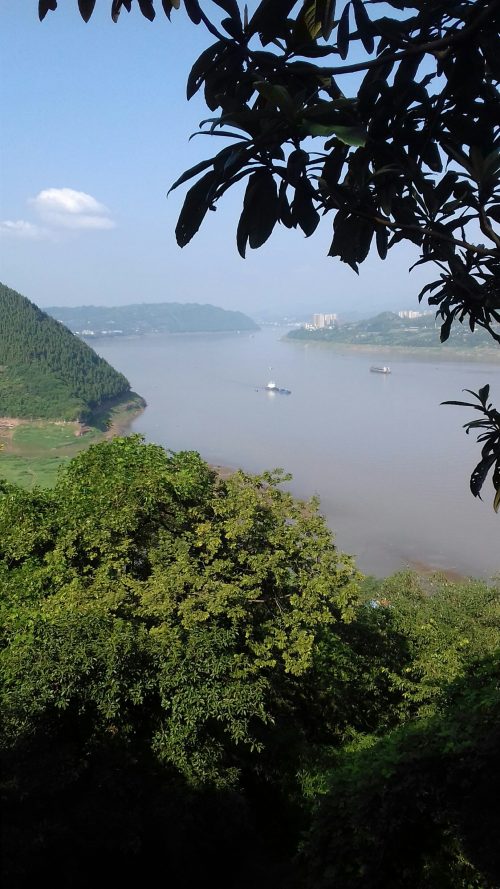Bill Bonnar argues Africa, as the poorest continent, needs special attention and resources
There is no doubt that the issue of radical climate change has rocketed up the political agenda both in Britain and on a global scale. It seems the dramatic warnings contained in the now endless reports are hitting home and the world is waking up the scale of the crisis. In the past, climate change was seen as a future crisis worthy of attention but not a priority. Now it is clear that this future has now arrived and is having an ever increasing impact.
A report from Oxfam some years ago described a two stage process. In the short to medium term, the world would see a dramatic increase in severe weather events including everything from hurricanes to droughts as the planet gradually warmed. In the longer term, rising sea levels would have an even greater impact. It is now clear we are living through the first of these scenarios. According to the follow-on reports from Oxfam (which had been monitoring ‘climate-based disasters’ from 1995 to 2015), there had been a fourfold increase in such events in that period. The reports described a climate-based disaster as ‘an extreme weather event which caused significant human casualties’. In a similar vein, the former Australian Prime Minister at a Climate Change Conference in Melbourne, when discussing the severe drought affecting that country, said that we should stop referring to this as a ‘drought’. Calling it a drought implies something temporary whereby at some stage the drought will end and normality will resume. In fact, the drought is the new normality and Australia had witnessed a climactic shift.
The continent most affected by climate change is Africa. It is also the continent least able to deal with its significant challenges. Drought is now a major factor in many parts of Africa. In the southern and eastern parts of the continent, the drought is as severe as that in Australia but with one major difference. Australia has the resources to deal with it. In countries such as Zimbabwe, Kenya, Tanzania, Malawi, Namibia, Mozambique, Angola and Botswana, drought is having a dramatic effect. Expanding deserts, less arable land and less fresh water supplies are having an increasing impact on the economies of these countries and in turn are exacerbating social and tribal conflicts. Across the continent, competition for declining resources has become a major factor in some conflicts. An example is the on-going war in Darfur in Sudan which originated as a conflict between two tribal groups over access to scarce arable land before being exacerbated by the government in Khartoum.

Africa faces many climate change problems. The growth of urbanisation has led to a dramatic increase in the need for fresh drinking water while the demands of globalisation have had a major distorting effect on African economies. Africa is a major exporter of raw materials yet has effectively no control over the prices it can charge for these exports. This is because these industries are largely owned and controlled by multi-national companies or through trade deals with countries like China.
African economies has also been forced down the road of replacing production for domestic consumption with cash crops for export which again has had a distorting effect on many economies. So, according to the United Nations in 1970, Africa was almost completely self-sufficient in food production and a major global exporter of food. Today, every African country without exception is a major food importer. All of this makes it difficult for African countries to finance the kinds of measures needed to tackle the effects of climate change. Africa needs massive financial aid from richer parts of the world, not as an act of charity but because tackling the problems of climate change in one part of the world affects all others. Besides, given the wholesale looting of the continent in the colonial and post-colonial period, Africa is due some of that money back in reparations.
The recent international climate change conference in Poland highlights some of the issues. Like at other such conferences, scientists identify the problems and the absolute minimum set of measures needed to tackle them. In order to reach agreement, these hitherto absolute minimum measures are then watered down massively, reducing their effectiveness. That’s if they are actually carried out at all. The track record so far on this is not encouraging. The value of such conferences, therefore, tends to be symbolic as well as raising awareness. Actual change comes through the climate change programmes of individual countries and, here, Scotland has become something of a world leader as it makes the transition from fossil fuels to renewable energy. The tens of billions of pounds of resources and the infrastructure needed to implement change are beyond the reach of most African countries. Future international conferences are needed to focus on how the richer countries can assist the continent for the benefit of everyone.
Bill Bonnar is a member of the editorial committee of the Scottish Left Review